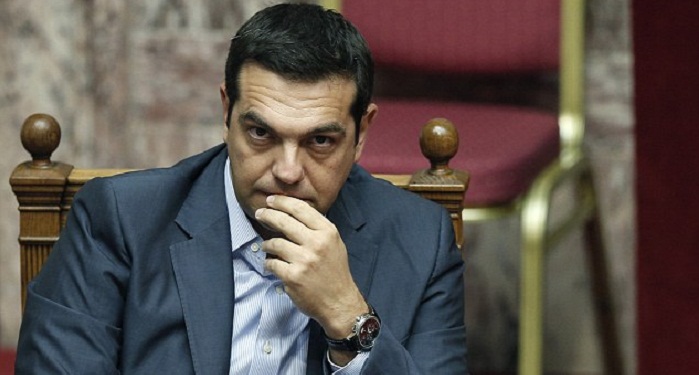At first, Tsipras sought a compromise with the IMF on this thorny issue which has required months of negotiations between Greece and its creditors.
"When two contracting parties are in a negotiation process, they should seek a compromise instead of reaching extreme versions. The compromise should be found in the middle of the course. The Fund will therefore have to decide if it wants to reconcile, if it wants to stay in the program or not. If it doesn’t want to compromise, it should say so publicly,” Tsipras said in an interview with the public Broadcaster, ERT, on Dec. 12.
But, in an interview with the newspaper Financial Times on Sunday, Greek Prime Minister Alexis Tsipras said that the International Monetary Fund should be left out of the third bailout program and should let the Eurogroup take full responsibility of overseeing the reforms.
"I am puzzled by the unconstructive attitude of the fund on fiscal and financial issues," Tsipras said. "We believe that after six years of management of this very special crisis, Europe now has the institutional capacity to cope with intra-European issues."
The Greek Prime Minister also pointed out that the best solution for his country is to rapidly exit the bailout program.
"If Greece completed the first evaluation in January, then we will have covered more than 70 percent of the economic measures imposed by the agreement. We have been following programs for five years. It is difficult for an EU country to have lost its sovereignty for so long. In order for the country to recover and get out of the control of the institutional creditors, it will have to implement the agreement. It is difficult, but it is the best choice for everyone. "
He also conceded that the third package of bailout reforms to be passed by the Greek parliament in January must include further pension reform.
The IMF has suspended further loans to Greece because of concerns about debt sustainability. Sovereign debt is to exceed 190 percent of GDP in 2016.
"Our roadmap," Tsipras said: “is to complete the first evaluation and soon after to have a positive decision on the necessary reduction of the debt."
Tsipras’ comments about IMF involvement provoked a strong reaction from Berlin and especially from German Finance Minister Wolfgang Schaeuble.
"I think we negotiated at length with Mr. Tsipras, in July and August. And he signed. And he had elections afterwards so as to have a mandate from the Greek people to be able to honor what he signed. I did not take into account that he speaks again about what he does not want to do. It is not in the Greek interest," Schaeuble said on Dec. 13.
More about:















































